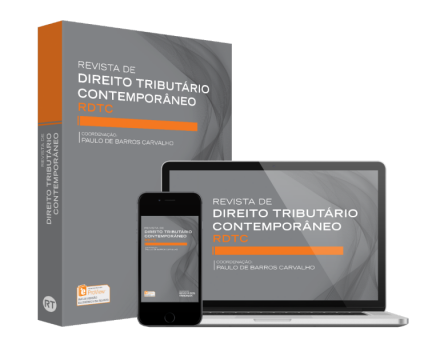A TEORIA DO PROPÓSITO NEGOCIAL: SISTEMA, NORMATIVIDADE, INTERTEXTUALIDADE E LIMITES INTERPRETATIVOS
Revista de Direito Tributário Contemporâneo
A TEORIA DO PROPÓSITO NEGOCIAL: SISTEMA, NORMATIVIDADE, INTERTEXTUALIDADE E LIMITES INTERPRETATIVOS
Autor Correspondente: R. Q. Almeida | [email protected]
Palavras-chave: propósito negocial, norma, fenômenos linguísticos, constructivismo, sistema
Resumos Cadastrados
Resumo Português:
O presente trabalho teórico revisita a controversa Teoria do Propósito Negocial, agora sob albergue do Constructivismo Lógico-semântico, que será a metodologia utilizada para aproximação do nosso objeto. Levando em consideração a Teoria dos Sistemas, buscaremos delimitar nosso campo de estudo, procurando entender os limites normativos para a aplicação da teoria no sistema jurídico brasileiro. Ainda, destacaremos a força dos fenômenos linguísticos, sociais, culturais e temporais, que atuam sobre a teoria. Ao final, concluiremos pela impossibilidade de aplicação da teoria no Brasil, tal como vem sendo desenfreadamente aplicada, principalmente pelo Conselho Administrativo de Recursos Fiscais (CARF).
Resumo Inglês:
The present theoretical work revisits the controversial of Business Purpose Theory, now under the shelter of Logical-semantic Constructivism, which will be the methodology used to approach our object. Taking into account Systems Theory, we will seek to delimit our field of study, seeking to understand the normative limits for the application of theory in the Brazilian legal system. Still, we will highlight the strength of linguistic, social, cultural and temporal phenomena, which act on the theory. In the end, we will conclude that the theory cannot be applied in Brazil, as it has been unbridledly applied, mainly by the Administrative Council for Tax Appeals (CARF).

